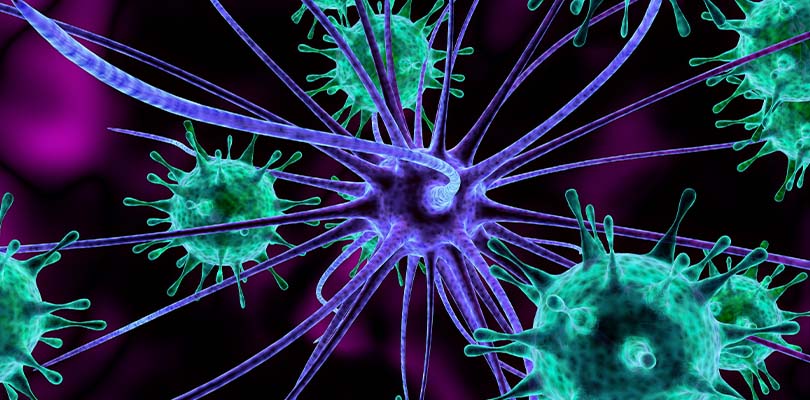Photo Credit: gpointstudio / iStockphoto.com
Fibromyalgia Myths
If you have fibromyalgia you have probably experienced that moment when you tell someone your diagnosis only to be met with a look of confusion, skepticism, or an actual question about whether what you say you have is real.
Because there are no specific blood or lab tests that diagnose fibromyalgia, those who are diagnosed (by a doctor noting that they have several of the specific criteria of symptoms) often get this type of reaction from their friends, family and even some doctors.
That’s right, some doctors still do not take the condition seriously; more so in the past, before recent research and studies, but I feel many doctors still brush the condition aside as ‘not important’ today.
This skepticism is unfair and based on ignorance to the latest research and the fact that a condition can exist without being able to see proof of it under a microscope or capture it with an x-ray.
Fibro Untruths Can Be Frustrating
Probably the most common misconception of the general public is that fibromyalgia isn't a real medical condition and that it is somehow "all in your head." Basically, we are accused of being hypochondriacs or attention seekers. Though much research is still needed to solve the mystery of fibromyalgia, there have been great strides in research over the past few years.
Here are a few facts to counter any questions about fibromyalgia being a real medical condition:
People with fibromyalgia process pain signals differently
People who have fibromyalgia have an issue with how they process pain signals. Basically, researchers have found that the brain and spinal cord process pain signals differently in fibro patients than they do in people without fibro.
As a result, patients have a heightened experience of touch and pressure, with a much greater sensitivity to pain. It is a real physiological and neurochemical problem.
Studies have connected fibromyalgia to issues with blood flow in the brain
A brain scan study completed back in 2008 concluded that fibromyalgia can be related to abnormalities of blood flow in the brain. Fibromyalgia was found to be related to “a global dysfunction of cerebral pain-processing" according to study author Eric Guedj, MD, of Centre Hospitalo-Universitaire de la Timone, in Marseille, France.
Researchers for the study conducted brain scans on 20 women with fibromyalgia and 10 women without the condition. The participants also answered questions about their pain, anxiety and depression.
The brain imaging technique, called single photon emission computed tomography (SPECT), has the ability to detect functional abnormalities in the brain. The study found that those with fibromyalgia had abnormalities in cerebral blood flow, also called brain perfusion. Depending on the location in the brain, blood flow was either below normal or above normal.
Researchers were able to analyze how the blood flow abnormality in each area of the brain related to the patients’ descriptions of pain, disability, anxiety and depression. They confirmed that patients with fibromyalgia showed an increase in blood flow in areas of the brain involved in sensing pain and a decrease was found within an area thought to be involved in emotional responses to pain.
Fibromyalgia is defined as a chronic, debilitating condition
Fibromyalgia and autoimmune disease can often appear with the same symptoms. But what's the relationship between the two? Learn more here.
Fibromyalgia is defined as a chronic disorder characterized by widespread muscle pain, knots or trigger points in the muscular system and debilitating fatigue. It affects up to 4% of the population, mostly women.
There are specific locations on the body where these trigger points form, often a knot in the muscle that can be felt by the doctor examining the patient, and these are part of the symptom criteria used for diagnosis.
Why People Question if Fibromyalgia is Real
Today, many people seem to think that doctors can fix just about every condition, and that if you have a chronic illness you experience the same symptoms every day.
In other words, the fact you may have good days when you can function normally and then suddenly you cancel plans and complain about the pain you are suffering conflicts with how most people imagine a “real” condition. They think if you are OK one day, you should not be debilitated the next. But that is not how fibro works.
They also think that with all the advances in medicine, doctors can easily provide really effective solutions for the pain and fatigue of fibromyalgia. Unfortunately, doctors today find that it is a combination of diet, lifestyle changes, rest and medications that can help keep fibromyalgia from flaring, but there is also no “one solution fits all” and there is no cure.
I truly feel that more and more people are realizing that fibromyalgia is a real medical condition, but I still find myself not disclosing my diagnosis for fear that I will get that look of disbelief. Do people have the same disbelief over polymyalgia symptoms?
Doctor’s Checklist of Fibromyalgia Symptoms
- Chronic muscle pain, muscle spasms, or tightness in specific knots or trigger points on the body.
- Stiffness upon waking or after staying in one position for too long.
- Excessive, often debilitating fatigue and decreased energy.
- Reduced tolerance for exercise and extreme muscle pain afterward.
- Sleep disruptions or waking up feeling just as tired as when you went to sleep.
- “Fibro fog” or difficulty remembering, concentrating, and performing simple mental tasks or remembering words.
- Abdominal pain, bloating, and constipation and/or diarrhea (irritable bowel syndrome)
- Tension or migraine headaches and jaw and facial tenderness.
- Sensitivity to odors, noise, bright lights, medications, certain foods, and cold.
- Nervousness, panic attacks or depression.
- Numbness or tingling, also known as paresthesia, in the face, arms, hands, legs, or feet.
- Increase in urgency to urinate.
The more people understand and hear about the research and the criteria that leads to a fibromyalgia diagnosis, the fewer of us who suffer with it will be met with skepticism when we tell someone about our condition.
It is important to educate and spread fibromyalgia awareness, so that greater support and research will someday find better treatments for this condition and patients with fibromyalgia will not have to waste energy convincing family or friends that their condition, pain, and fatigue is real.







